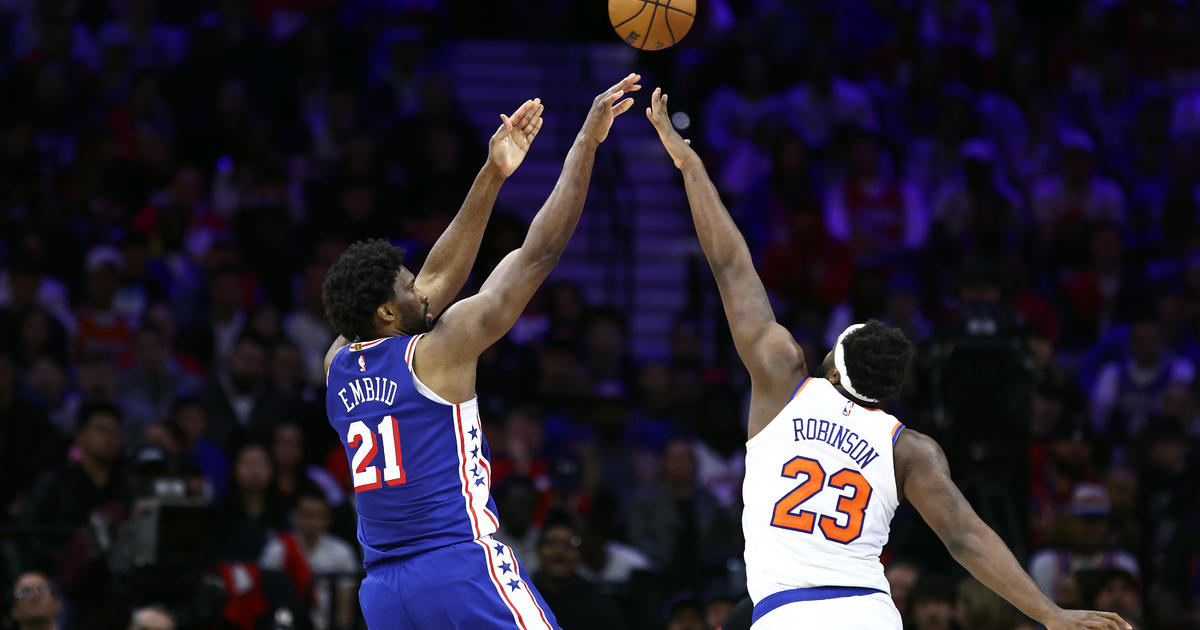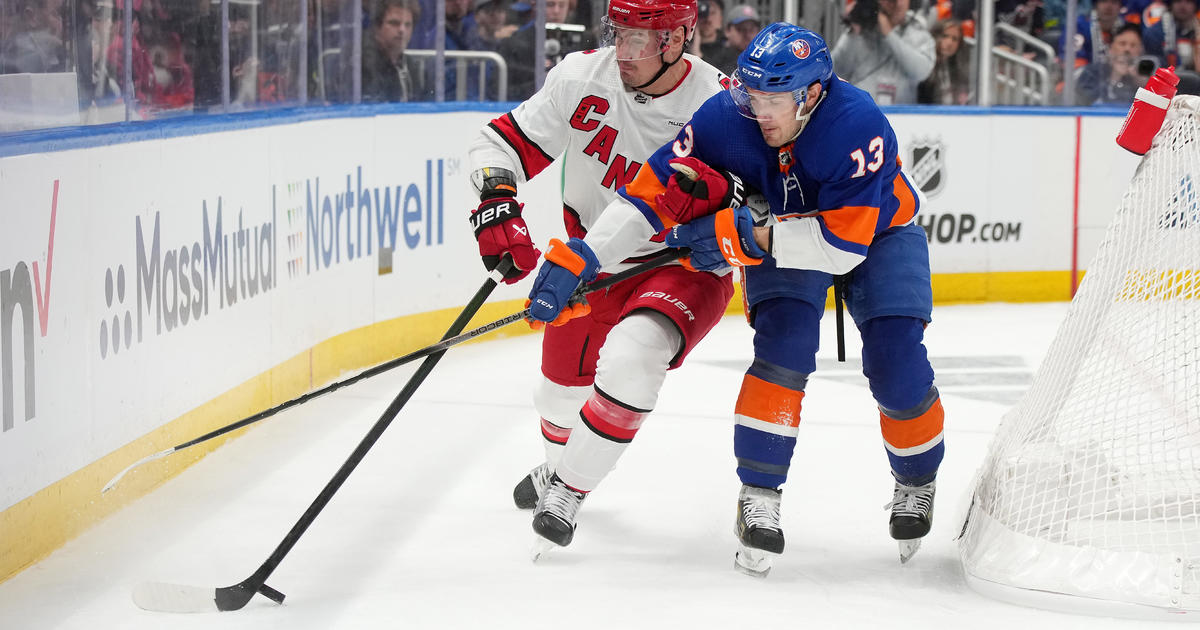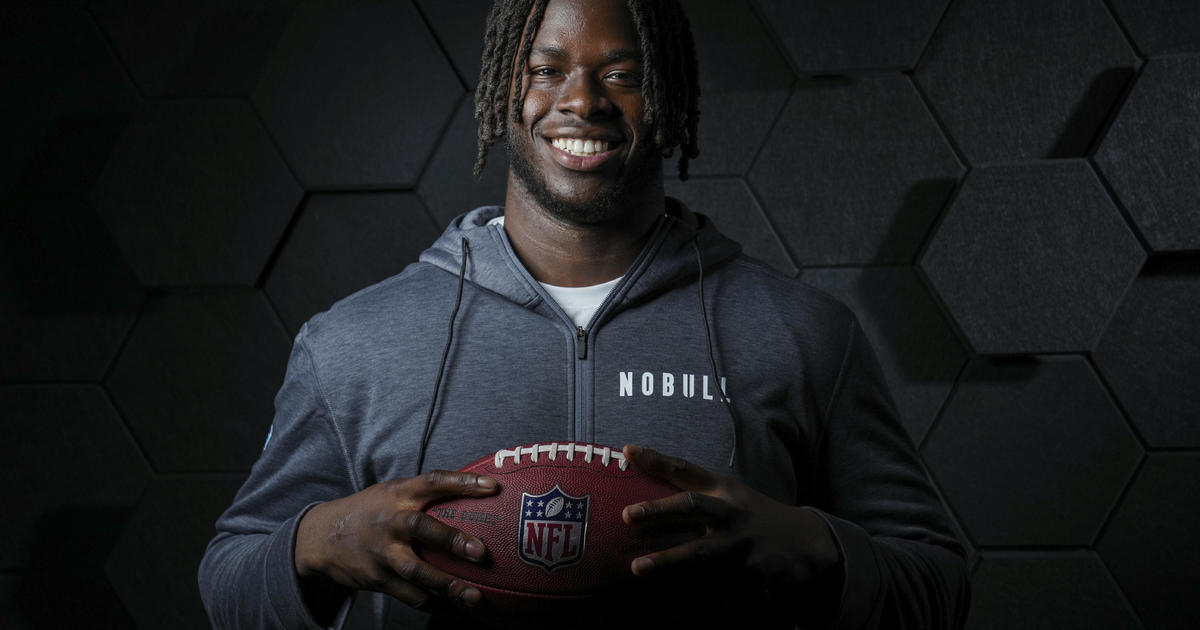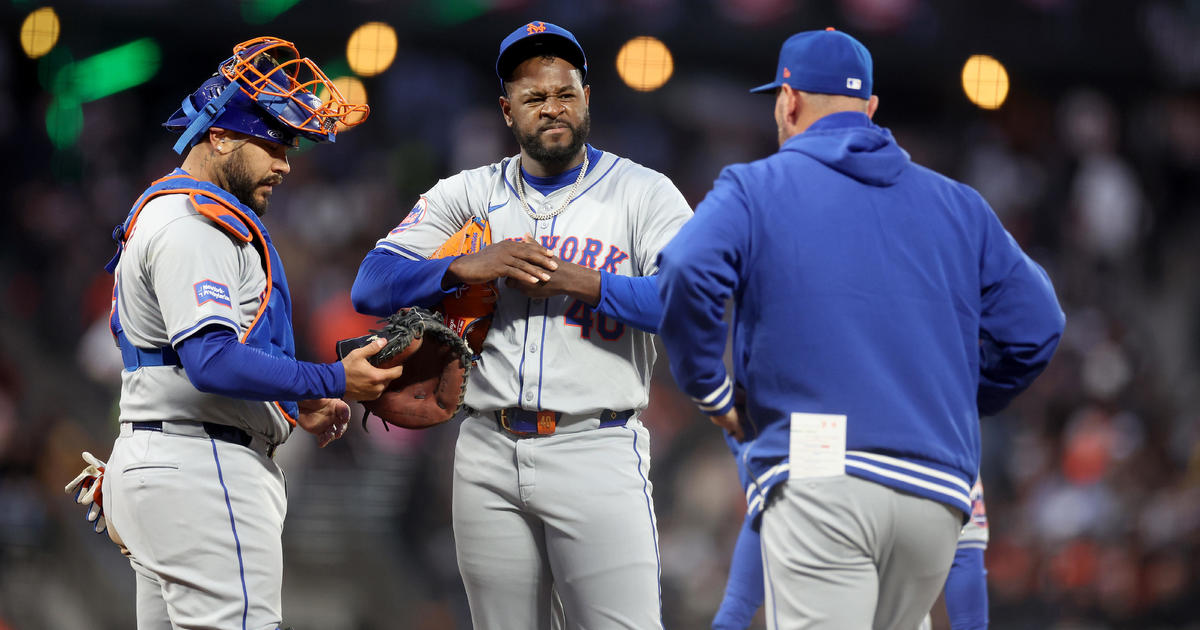Keidel: Jackie Robinson's Impact On America Will Never Dissipate
By Jason Keidel
» More Columns
In a world, nation, and sport forever divided by racial, political, and labor strife, we all pause every April 15 in admiration and dedication to one man who endured more of it than the rest of us combined.
Jackie Robinson may not have been the best player in baseball history, but he's the most important player in baseball history. While there is ample debate in all sports about the import of a particular player, on this topic, in this sport, there is no question.
There's no other American sport that stops, drops, and bows to a single man the way our pastime does for its most singular symbol. Rightfully so.
On April 15, 1947, Robinson trotted onto the pristine grass of Ebbets Field and changed the world. So every year it's up to us to carry his torch and burnish his legacy. Every MLB player must wear No. 42 today, and may not wear it any other day.
While football has supplanted baseball as our favorite sport, the alchemy of time and technology makes it impossible for football to be our pastime. Baseball, particularly in post-war New York City, was the emblem of fun and freedom, with at least one team from the Big Apple playing in 11 of 12 World Series between 1947 and 1958.
Robinson was there for all of it as a member of the Dodgers, who mutated from "Dem Bums" to the "Boys of Summer." When, as a local fan once put it, baseball was perfect.
With nearly a dozen daily papers, with no team sports to compete for the entertainment dollar, and iconic radio voices beamed into living rooms every day, baseball had the romantic charm and historical prerogative that no sport could possibly enjoy in 2016.
Thus it was more than a personnel move that brought Robinson to Brooklyn 69 years ago today. It was a tectonic shift in sport, society, and history.
History tends to airbrush the meat-hook realities of our past. Like the idea that Pee Wee Reese trekked across the infield to lap his arm around Robinson, in a seminal moment in civil rights. It didn't happen. Reese indeed swallowed his southern sensibilities and befriended Robinson, but there was no singular, historic hug that rolled out the welcome mat for Robinson.
More realistic was the Homeric journey depicted by Ken Burns's fascinating and enlightening documentary, which frames the flaming racism hurled Robinson's way, from the stands that doubled as Klan rallies, to vitriolic opposing managers, like Ben Chapman of the Phillies, to the Jim Crow scowls from teammates, like (fittingly named) Dixie Walker, who tried to organize a league-wide boycott.
Just as we all like to think Muhammad Ali was beloved from the jump, the truth is he was abhorred for much of the 1960s. If he wasn't despised for changing his name from Clay to Ali, his PR fate was sealed when he refused to be inducted into the U.S. Army. Only now, with history smoothing the old scabs, is Ali truly regarded as the "Greatest."
So it is with Robinson, who made it possible for Ali, Jim Brown, Bill Russell, and others to break open the door of segregation. Baseball historian and renowned thinker George Will has often said that the two most important faces of civil rights are Martin Luther King Jr. and Jackie Robinson. That isn't hyperbole.
Burns, the creator and curator of the sublime documentary on Robinson, Part 1 of which just aired on PBS, recently spoke with Mike Francesa. And Burns reminded us that before Brown vs. Board of Ed, Rosa Parks, James Meredith, and the march on Washington D.C., Robinson trotted onto a baseball field in Brooklyn and into the cauldron of hatred.
There was no safety net, no support group, no government or legislative arm around his back. Jimmy Cannon once called Robinson the loneliest man in sports. You could probably remove the "sports" qualifier. Not only was baseball our greatest sport, it was also our whitest. Robinson could not have faced a tougher challenge, both in the arena or in the public. Even today, baseball resists the slightest change, from replay to running inside the base paths to sliding safely. Every new idea is granted at a glacial pace. Jackie was pushing a boulder up the hill of history and bigotry.
And it's fitting that it happened here, in the Big Apple, in Brooklyn, under the raised arm of Lady Liberty. In the biggest and greatest city in our nation, the quintessential melting pot. Maybe it's been gentrified beyond our eyes' ability to correct, but there are still remnants of the old world to remind the new world of Robinson's import.
How would the world -- and our city -- have changed had Brooklyn never left? How many Mets fans would still be Dodgers devotees? There may not have been a Mets had the Dodgers not fled westward, taking the New York Giants with them. A move that Roz Wyman, the 22-year-old councilwoman from Los Angeles who pulled off the baseball coup, said was the worst in the history of American municipalities. She's not far off. How many displaced Giants and Dodgers fans have met at the awkward intersection of Flushing? Why did they even have to make that decision? How could the borough that integrated baseball lose baseball a decade later, and never get it back? (We can thank Robert Moses for that.)
Maybe the mass defection added to the legacy and mystery of the Dodgers, and of Robinson, who was both old school and a visionary, a baseball prophet and pioneer whose courage still fuels a sport, and a country.
To show you how old school Robinson was, he retired the moment he learned he was traded to the hated New York Giants. He hung up his cleats, signed a monster contract with the coffee company that made "Chock Full O' Nuts," and rode off into the baseball sunset. If only the Dodgers -- and America -- showed Robinson the love and loyalty he showed them.
Robinson served in the Army for a country that didn't serve him. He ordered take-out from restaurants that refused to feed him. He played for a team and graced a sport that didn't want him. But through the sheer force of his skill, will, and courage, he made it, blasted through the hard membrane of bigotry. And we're all better because of it.
And, as is often the case with hot-button issues, Robinson's crusade for equality is hijacked by two, divisive factions, each latching on to cultural extremes -- those who say nothing has changed since Robinson broke the color barrier, and those who say everything has changed.
Before he died, Robinson spoke on a baseball diamond, before a bouquet of microphones, imploring baseball to enact the kind of progress he started. He longed for a face that looked like his in the dugout. Not long after his death, Frank Robinson became baseball's first black manager.
But progress is glacial. There's a troubling decline in minority participation. Over the last five years, only 8.3 percent of MLB rosters have been black, according to motherjones.com. Just 13 percent of general managers are black. And, shamefully, there is one -- one -- major league manager of color -- Dusty Baker.
Things aren't much better for Hispanics, who make up 29 percent of MLB rosters, yet occupy just 3 percent of managerial jobs. Love, like progress, is an action, not a word. So it's hard to look up with pride at Robinson's likeness at Citi Field knowing the harsh realities down on the ground.
It's not for any one man -- particularly a white man -- to tell you what Robinson means to you, or to America. But his mere presence and prescience moved the needle of equality more than anyone in the history of sports, if not the history of our nation.
And it's altogether fitting and proper that the last man to wear No. 42 was another New York ballplayer. Mariano Rivera. The relief pitcher nonpareil wore the number in honor of Robinson, and carried it with the grace surpassed only by his hero. If you're lucky enough to have met the immortal Mo, you'd know it's no coincidence that he was the last. Rivera treats the team owner and the team janitor with equal class, his wide smile, soft voice, and tender soul was a Bronx beacon for nearly 20 years.
Jackie Robinson was a prince when baseball was royalty. And while we can't ever go home again, on every April 15, we can make Mr. Robinson king for a day.
Follow Jason on Twitter at @JasonKeidel



